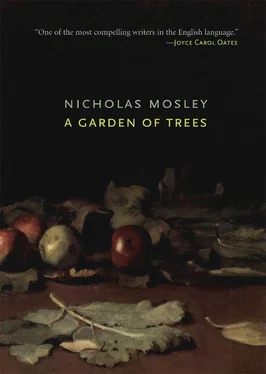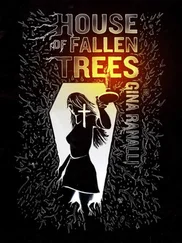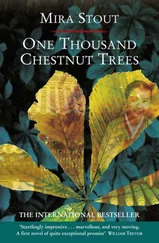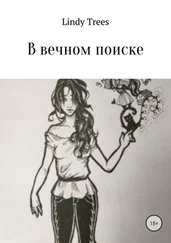Being turned outwards, and suffering, he had to have a God, and his god was Marius. I believe that Marius was a god to several people, but to none so strongly as he was to Peter. Peter took Marius as a god because he was free not only from all the things that Peter hated, but also from the hatred that was in Peter; and perhaps it was this hatred that obsessed Peter most of all. I know that Marius never hated. I don’t know if he ever loved, either, in a human, passionate way; not even Annabelle. The word seems to bear a different relation to him. There is a meaning of the word in which it is abstract, inhuman; as if it described the state in which love might be possible, rather than the fact of love itself. This meaning, I think, was more applicable to Marius. Of course, Marius was not entirely like this, but he seemed to be at moments; and looking back on him this seems to be the best way to explain him.
It is difficult to explain him further. I heard him called a saint, once, at the end of his life, but he was not a saint. Saints are solitary, emotional people, whose force is emotional and who as a result are often embarrassing. Saints are crucified by the world because people get fed up with them, because they are too much of a good thing, not because the world feels a challenge from them. Marius’s force was not emotional: he was too restrained, enclosed, static. It was not intellectual either, because I think he despised the intellect: he never gave much time to arguments that were logical. Another word is needed to describe the force that Marius possessed, and I do not think that the word exists. It was something to do with the subconscious, something frightening without the emotion of fear and true without the validity of reason. One always felt that Marius was right, like an oracle, even when one disagreed with his words. It was this that was frightening. His force, his whole understanding, seemed to come from a different level of consciousness to that of other people. Being in this presence was sometimes like the feeling that one gets when one is alone in a forest — a hard, impersonal, unbelievable feeling, like losing consciousness. I thought of him once as a tree, and I remember this feeling. Primitive peoples are said to worship trees because they imagine that there is something supernatural about them. There is nothing emotional or intellectual about this sensation. It is different from that — on another level.
And the world did feel a challenge from Marius. They felt him as a witch, not as a saint, and they resented him. The peculiarity of witches, as opposed to that of saints, is that they are usually burned without having done anything. Saints have to do a lot before attention is called to them: witches need do nothing. Saints are condemned for their unnatural actions: witches for their unnatural personality. Marius did not have to do anything. He maddened people by doing nothing, by his aloofness. And those who did not see him as a god often saw him as a witch, and they wanted to burn him. They said he was inhuman, and so he was. Humanity depends upon the conflict between good and evil, and I do not think that there was often a conflict in Marius at all.
And Annabelle? I cannot describe Annabelle. She has seemed to me to be most things in her time.
In the days that we were together, then, after our meeting with Alice, we moved around London with the impetuosity of people who have not known each other for very long, people who have been thrown together on a holiday that might end at any moment or go on for years, people who keep moving because to sit still is a waste of time. Peter, waiting for news from his father, had nothing to do: I, being idle and disorganized, had nothing to do: Marius and Annabelle, although they disappeared regularly — she to the shops and kitchen, he to no one knew where — did not let what they had to do intrude upon the irresponsibility that seemed our special province. I have never again been happy in this province, but I was then, and I think it was this very fact that we were waiting, as if on a holiday, and the fact that we really knew each other so little, that made this happiness possible. I had built up myths around them, and perhaps they had built up their own myths too, and one can live by myths quite easily so long as circumstances do not combine to mock or shatter them. For me the circumstances were propitious for myths, because my knowledge of the reality was so limited. There were many unanswered questions that lay around us, for instance — questions about Marius’s wife, about Marius’s relations with Annabelle, about hers with him, about Peter’s attitude to whatever these relations were. There was also the question about myself — about why they should be content that I should spend so much time with them. This question was never even asked. Nor, indeed, were the others, but they hung in the air around us like the mysteries, the riddles, that are the guardians of myths. The question of Marius’s wife, especially, was often present in my mind; but instead of causing the uncertainty that might have been expected, in some way it helped, by the fact of its secrecy, to mitigate the irresponsibility and make possible the fun. Since we did not know what it was that we ought to worry about, we waited for a time when we might; and in the meantime did not worry at all. It was as if, under the shadow of secrets, we were able to live more freely beneath the sun that might otherwise have weaned us. The power of myths usually resides in their mysteries.
It was this power that determined my feelings at that time towards Annabelle. I loved her, and I knew that I loved her, but it seemed impossible that I should ever make this known. I felt that she belonged to Marius; that there was so much established between her and Marius in their attitude, their behaviour, and their past, that any intrusion on my part would be sacrilege. It never occurred to me to try to establish a separate relationship between the two of us on our own. Whenever we happened to find each other on our own by chance, the situation at once became awkward, alarming, as if we were treading on forbidden ground; threatening the myth, coming close to breaking some taboo. We would make polite conversation, not looking at each other, and wait for the others to return. I became strangely aware of myself at these moments — aware of responsibility and the stretching length of time. But the others always did return, and then we would greet them, and the fantasy, shaded from its dangers, could continue on its levels out of time and out of thought. I did not know the nature of these taboos, these mysteries, but I remember them. Whatever love there was between Annabelle and me at that time belonged to them. I think it was the existence of Marius’s wife that was perhaps the cause of them. She was the fifth person amongst us, always, absent and unknown, who by her presence and yet her absence made the relationship between the four of us so imaginary and yet so strong.
So we lived on the surface, and the surface was movement, and the movement was fun. Alice was right, I thought; it is fun that matters. Fun as a business, fun as a life, fun as an attitude that is graceful and creative. There were days when nothing mattered but this, and these I remember. Peter walking up the street with his golden hair bounding, his jacket open, his tie over his shoulder, his shirt rucked up around his waist: Annabelle with a hat like those that Spanish men wear when they come in to towns for the festivals, a black stiff hat with a wide flat brim and a crown on top like a cake tin: Marius on the corner, always slightly dramatic, always posed, his hands in his pockets, watching. Peter running through the traffic, running for a bus, everything flying, his arms, his legs, his elbows, waving: Annabelle swaying with long quick steps with her chin tilted up above the soft black strap that ran from her hat past her cheek-bones: Marius standing, watching us catch the bus, following from a distance discreetly in a taxi. Peter wore old clothes, clothes from his school days, but he wore them with a peculiarly careless elegance. Annabelle made her own clothes, made them from stiff jutting material that went in capes and folds, reminding one of bustles and epaulettes and bodices. One never noticed what Marius wore.
Читать дальше












